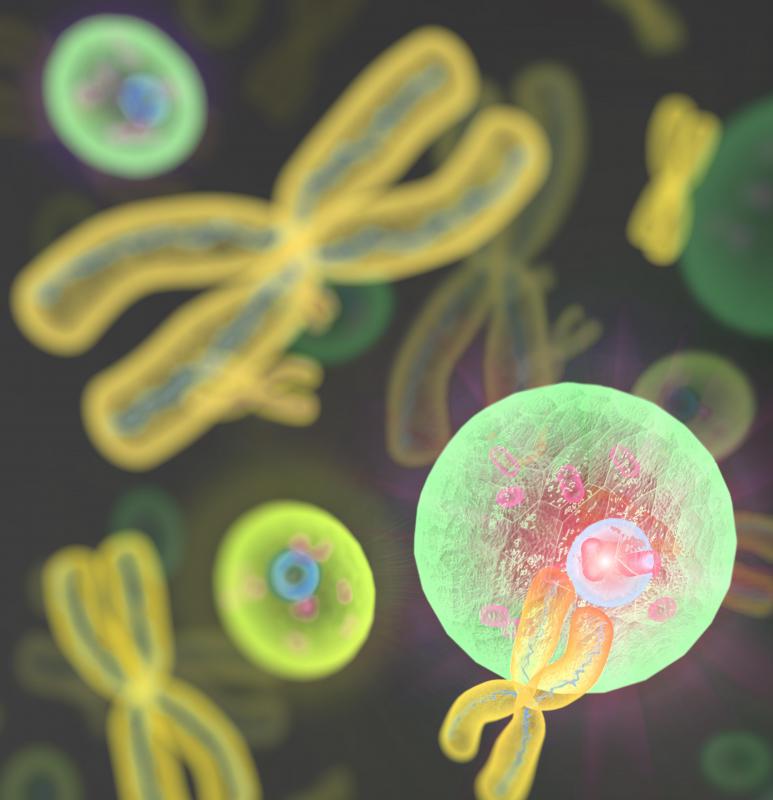At WiseGEEK, we're committed to delivering accurate, trustworthy information. Our expert-authored content is rigorously fact-checked and sourced from credible authorities. Discover how we uphold the highest standards in providing you with reliable knowledge.
What Is Cytidine Deaminase?
Cytidine deaminase (CDA) is a protein that plays a role in the immune system. This enzyme is encoded by the CDA gene, found on chromosome 1. When this gene undergoes mutation, it can have powerful implications for individuals with cancer. The mutation can decrease the body's response to certain cancer treatments, due to drug metabolism.
Under normal conditions, cytidine deaminase is involved in a pathway that creates nucleic acids. This enzyme converts cytidine into uracil. As such, it is capable of producing this compound as a nucleotide for use in ribonucleic acid RNA chains. It can also directly change deoxyribonucleic acid (DNA) through the same method.

A form of this enzyme, activation induced cytidine deaminase (AID) is particularly important for immune system function. B cells in the immune system must shuffle certain genes that code for immunoglobulin (Ig) in order to produce a variety of antibodies. The ability of AID to directly alter DNA is used by B cells for a type of shuffling called switch recombination.

The enzyme must first be activated by binding a cofactor for this to take place. This safety measure prevents it from editing DNA chains that constitute other genes. Mutations in areas near the Ig gene can lead to overactivity of cytidine deaminase. The resultant condition is known as hypermutation, and is characterized by an overabundance of genetic changes in a relatively small area.
An incidental effect of this this enzyme is to catalyze the deactivation of certain anti-cancer drugs. One such drug is gemcitabine, a molecule that is quite similar to a nucleotide, and which can disrupt the ability of cancer cells to divide. The structural similarity to nucleotides allows cytidine deaminase to act upon it and neutralize it.
Variations of the CDA gene can affect how individuals respond to drugs like gemcitabine. Some differences cause the gene to be transcribed more often, creating more cytidine deaminase. This could cause gemcitabine to be metabolized more rapidly, and not be as effective in fighting cancer. Other variations caused the enzyme to have difficulties metabolizing gemcitabine, increasing response to the drug.
There seems to be differences in the CDA gene based on ethnicity. Certain allelic variations of the CDA gene are seen mostly in the African-American population. Other differences that could have clinical significance were found to be more common in Japanese individuals than in Chinese-Americans or Caucasian-Americans. These differences could all impact the response to gemcitabine and other anti-cancer drugs, and could have important implications for future cancer research.
AS FEATURED ON:
AS FEATURED ON:












Discuss this Article
Post your comments